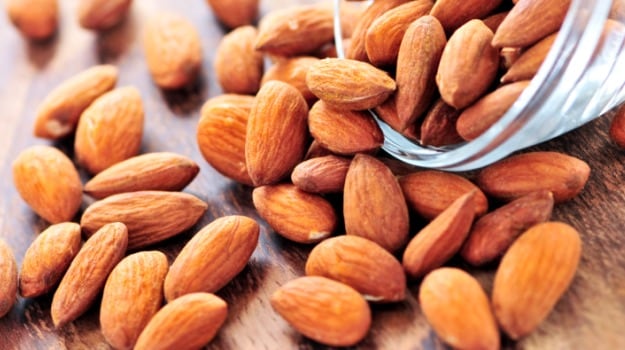
Navratri is one of the most popular festivals in India and is a part of the Shree Ram Navami. The festival is celebrated to worship Goddess Durga for nine days. Navratri is observed, once in the beginning of summer and then in the beginning of winters. People generally follow a fasting ritual to please the almighty during these nine days. Every Indian festival is not just related to some spiritual reason or simply to make merry. There are many scientific reasons and a valid logic behind celebrating festivals on certain times of the year.
Also read: Wondering What To Eat During Navratri Fasting? Here Are 6 Healthy Meals You Can Choose From
Nutritionist Tapasya Mundhra explains the scientific concept of fasting this Navratri. During this period of the year there is a change of season and food. When there is a lot of change it is normal that our body also experiences some significant changes. During this time of the year, the digestion process is comparatively slow and hence the person tends to feel lazy, lethargic and dull. Therefore, it is advised that even if you do not fast during Navratri you should go low on food. Moreover, during this time our body’s immunity is low. Eating high-energy foods like meat, eggs and alcohol can make you prone to diseases. Fasting helps to cleanse and detoxify the body thereby giving rest to its vital organs. Some health benefits of fasting are purification of the gastro-intestinal tract, cleansing of the organs and aiding in metabolism. During fasting, the digestive system goes into the rest phase. The rest to the intestines and related organs enable them to function better later. Also when you are fasting, bloating will disappear. As an added benefit, the process can help you lose those extra kilos.

Eating high-energy foods like meat, eggs and alcohol can make you prone to diseases.
Photo Credit: iStock
Also read: Navratri 2018: 5 Incredible Health Benefits of Sendha Namak (Rock Salt)
The nutritionist suggests a proper diet plan to follow during Navratri days:
1. Early morning breakfast:
Breakfast is the most essential meal of the day. Therefore, it is necessary that we eat a healthy and nutritious breakfast early morning. When we talk about healthy, fruits is one food that comes to our mind. Fruits are rich in fibre which helps you keep full for longer. Thus having a platter of fresh fruits can be beneficial for your overall health.

Breakfast is the most essential meal of the day.
Photo Credit: iStock
2. Mid-day snacks:
Generally around eleven or twelve in the afternoon you feel a bit hungry and drowsy. For a healthy afternoon snack coconut water is best. Coconut water is extremely refreshing, light and loaded with essential vitamins and minerals.

Coconut water is extremely refreshing
Photo Credit: iStock
3. Lunch:
For your lunch sprout salad, soup with fresh vegetables or khichdi works great. You can add a dollop of ghee to your khichdi. Moreover, khichdi is a wholesome meal comprised of all the vital minerals and vitamins. The combination of rice and lentils makes a balanced meal with proteins, carbohydrates and dietary fibre.

For your lunch sprout salad, soup with fresh vegetables or khichdi works great.
Photo Credit: iStock
4. Evening snacks:
A nutritious yet convenient evening snack can be a handful of nuts and seeds along with tea or coffee. Nuts are a great source of fibre which helps you keeping full for longer. You can even roast your favorite nuts like walnuts, almonds and cashews.

Nuts are a great source of fibre which helps you keeping full for longer
Photo Credit: iStock
5. Dinner:
We all know that dinner, being the last meal of the day should be light but healthy. For dinner, you can again go for khichdi. If you want something different you can even try some cutlets. You can make healthy cutlets with green vegetables like peas or corn, potatoes or even cottage cheese. But make sure you do not deep fry them.
Also read: Make Navratri Fasting Healthy With These Tips In Mind
Disclaimer: This content including advice provides generic information only. It is in no way a substitute for qualified medical opinion. Always consult a specialist or your own doctor for more information. NDTV does not claim responsibility for this information.
Track Latest News Live on NDTV.com and get news updates from India and around the world

